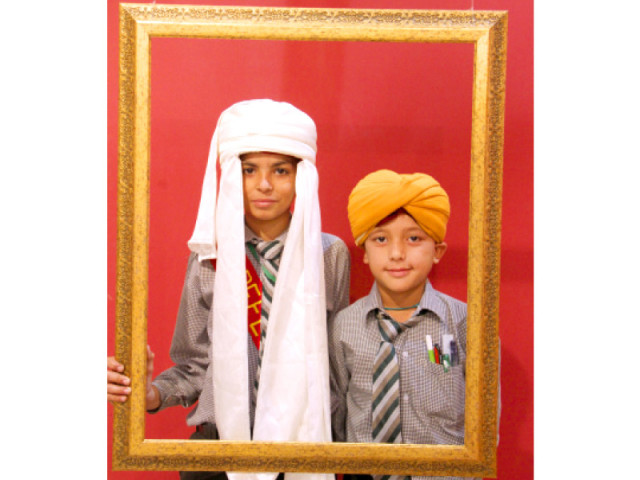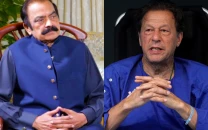‘Exchange for Change’: Exhibition showcases cultural similarities between India, Pakistan
Three-day archive exhibition concluded at NCA Rawalpindi.

Students from three cities each in India and Pakistan exchanged letters for over a year and finally travelled to each other’s countries as part of the cultural exchange programme. PHOTO: EXPRESS
A three-day archive exhibition portraying the shared culture of Pakistan and India concluded at the National College of the Arts, Rawalpindi on Saturday.
The exhibition, part of a 14-month project titled, “Exchange for Change: Pakistan and India 2012-2013”, involved around 3,500 students from Karachi, Lahore, Rawalpindi, Mumbai, Delhi and Chandigarh. Participants from the two nations said their stories are the same and worth sharing with the general public to dispel misconceptions prevalent on both sides of the border.
The project aims to improve relationships between school students of the two countries. The programme seeks to help students across the border realise that dialogue is possible and sustainable. Through cross-cultural communication, the students can have a clearer understanding of their history, culture and lifestyles.
Exchange for Change was launched in September 2010 between 2,400 schoolchildren from three cities each in India and Pakistan. Through the duration of the project, a sustained exchange of written visual and oral histories linked schoolchildren aged between 10 to 14 years across the six cities. The various selected schools ensured a holistic dialogue between students belonging to diverse socio-economic backgrounds.
The “Letters to the Past” series kicked off the project in September 2012 during which students engaged in letter-writing activities, sharing their thoughts, values, hobbies and interests with each other. Emphasis was laid on discussing historical and cultural facts so that students were not only able to make friends across the border but also participate in information exchange. Between December 2012 and February 2013, the “Photography Series” involved students in making postcards, greeting cards and collages based on four themes: school life, food, festivals, marriages and historical monuments. The “Oral History” series was conducted between February to April 2013, adding an audio-based dimension to the project. Students interviewed grandparents, collecting historical narratives about various cities across Pakistan and India as well as their recollection of the pre and post-partition years.
The project was successfully completed by the Citizens Archive of Pakistan (CAP) in collaboration with Routes2Roots (R2R), an Indian non-profit organisation working for peace and dialogue between the two countries.
Speaking about the initiative, Swaleha Alam Shahzada of CAP said, “As we have crossed borders through the stories of these children, we stand to have proven that by appreciating differences and celebrating similarities of the other, we can build bridges. The second round of the project marks a giant leap in our shared history. Our stories are the same — we just need to share them.” Interaction will in turn lead to a positive change and eliminate cultural misconceptions and inter-generational conflict, she added.
Tina Vachani, founder of R2R, said, “This programme has been very close to my heart and it is a great pleasure to see the growing understanding between students and change in perceptions and biases which helps us to dream of a brighter future.”
Published in The Express Tribune, September 15th, 2013.



















COMMENTS
Comments are moderated and generally will be posted if they are on-topic and not abusive.
For more information, please see our Comments FAQ